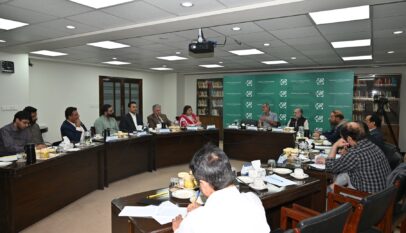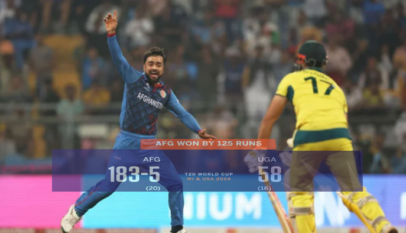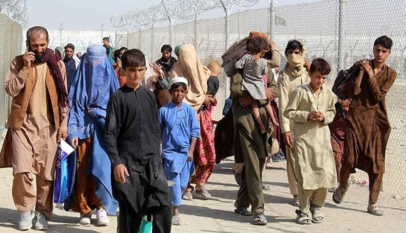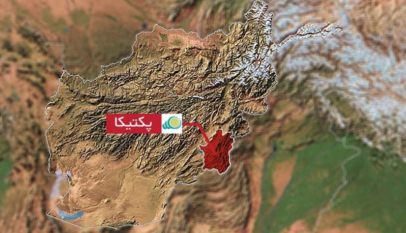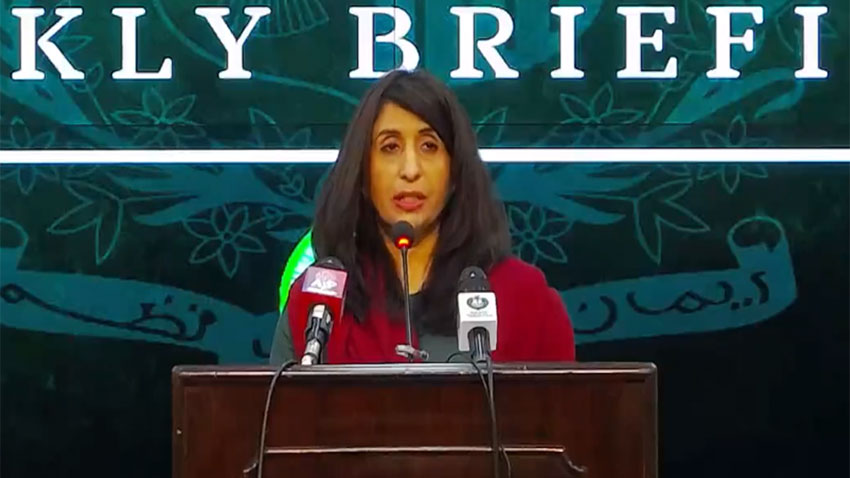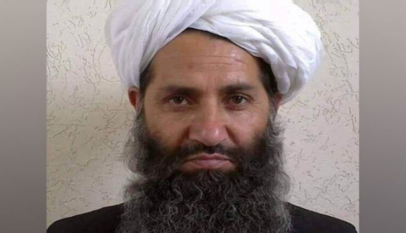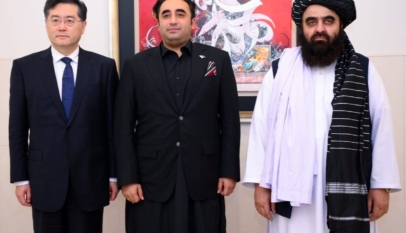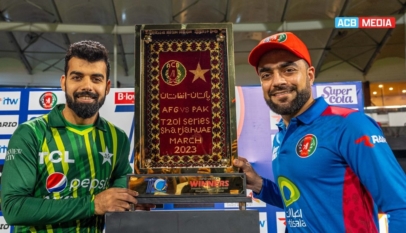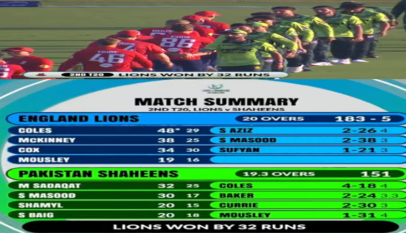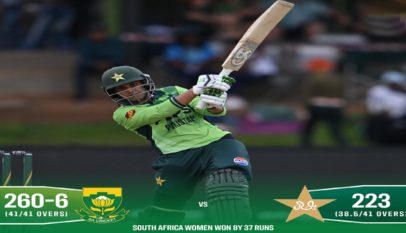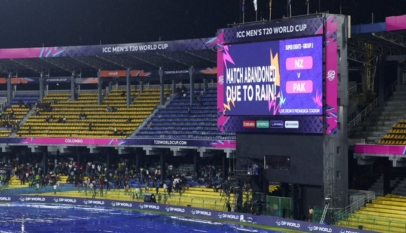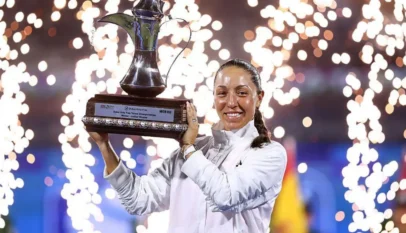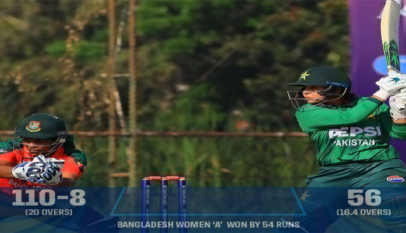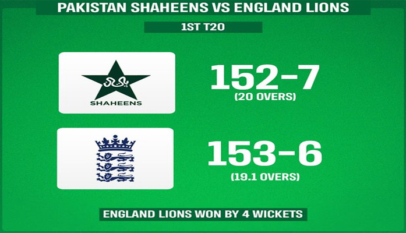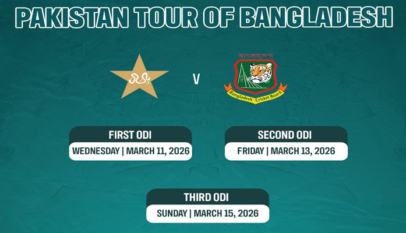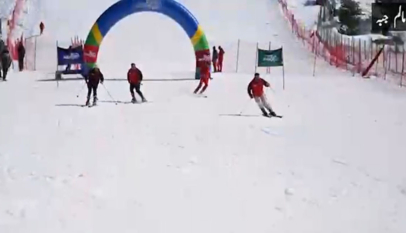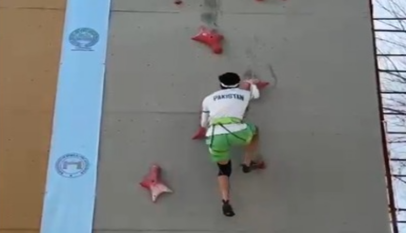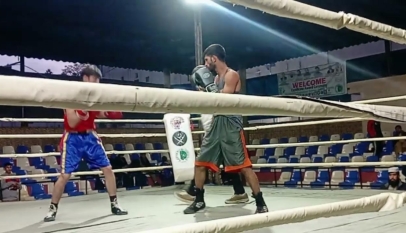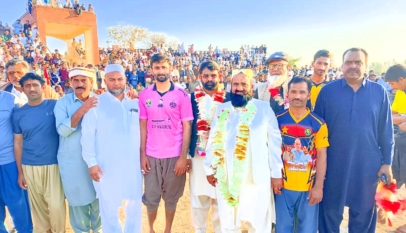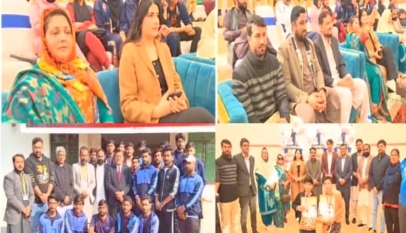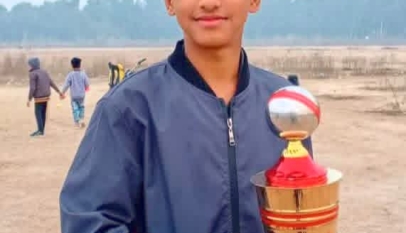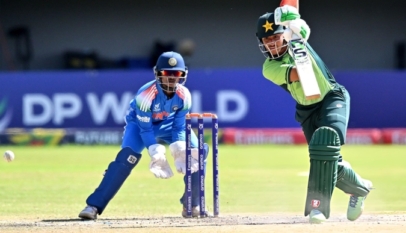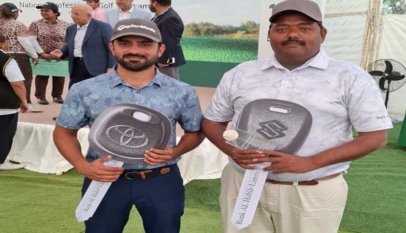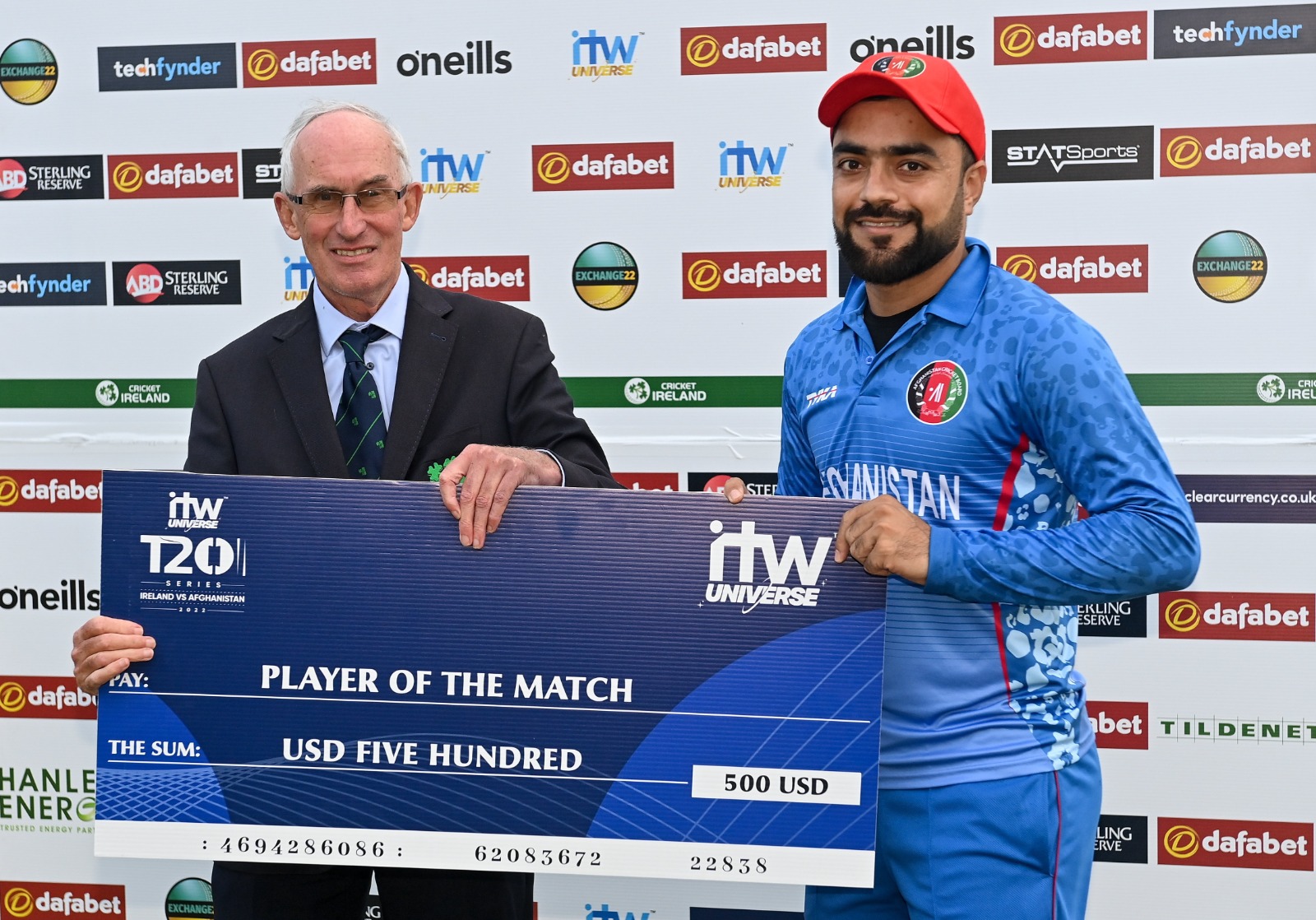
A 50-run partnership off 18 balls between Najibullah Zadran and Rashid Khan followed by a collective bowling effort helped Afghanistan level the series 2-2, in a rain-reduced 11-over shootout in Belfast. The decider is set to take place on August 17.
After rain delayed the start by two hours, Najibullah and Rashid lifted Afghanistan from 76 for 5 to 132 for 6. Ireland then fumbled in the chase and were bowled out for 105, with left-arm quick Fareed Ahmad taking three wickets and Rashid and Naveen-ul-Haq picking up two apiece.
Afghanistan got the start they wanted thanks to Rahmanullah Gurbaz once again. He took Josh Little for two fours and a six in the first over and followed it with a four and a six off Mark Adair in the second over to take Afghanistan to 28 in two overs, by the end of which his partner Hazratullah Zazai had faced just one ball.
Ireland continued to hit the hard lengths just like they had done in the previous game and the ploy got them their first wicket: Gurbaz’s attempt to pull a short-of-a-length ball resulted in a catch at short fine leg in the third over. Afghanistan stumbled further when legspinner Gareth Delany struck in the first two balls of the fourth over to remove Ibrahim Zadran and Zazai, giving away just six runs in the over.
Najibullah was coming into the game on the back of a match-winning 42 off 18 balls in the third T20I. In the fourth, he was fluent from the get-go, cutting his first ball through backward point for four.
The short ball, however, continued to bring the wickets for Ireland: Fionn Hand’s slower short ball had Mohammad Nabi caught at cover in the fifth over, while Delany’s short ball had Azmatullah Omarzai caught at deep midwicket off a pull in the eighth over, for his third wicket.
Najibullah then repaired the innings and took his chances too against the bowlers. However, it was Rashid’s entry that turned the tide for Afghanistan. After hitting Barry McCarthy for 20 runs in the ninth over, the duo took Delany – whose figures read 2-0-12-3 until then – for 21 runs in the following over. Afghanistan also capitalised on Ireland’s sloppiness in the field – Najibullah was dropped twice and Rashid once.
Najibullah raised a 22-ball half-century and the fifty stand with one blow. Adair then removed Najibullah in the final over of the innings, but the damage was done by then. Rashid hit a four off the last ball to take the tally to 53 off the last three overs. His strike rate of 310 is the joint-highest (minimum 25 runs) by an Afghanistan batter in T20Is.
Ireland required 12 an over to seal the series. And it looked like the experienced Paul Stirling and Andy Balbirnie were determined to hunt down the target as they struck 28 runs off the first nine balls of the chase. But the fun was short-lived for Ireland. After hitting Omarzai for 4, 4, 6 in the first three balls of the second over, Balbirnie was caught at backward point and Ireland’s slide started.
Fareed, playing his first T20I in 17 months, made sure Afghanistan did not miss Fazalhaq Farooqi – who has been ruled out of the rest of the series with a side strain – much on the day. He took two wickets in his first over, first nabbing Stirling with a short ball and then getting Lorcan Tucker to hole out with a fuller delivery. In his next over, Fareed also dismissed Harry Tector, leaving Ireland at 63 for 4 in six overs.
Rashid finally struck in the series after going wicketless in the first three games; before this series, he had never gone wicketless in two successive T20Is. He first flummoxed Delany with a wrong’un in the seventh over and removed McCarthy in the ninth with a length delivery which the batter hit straight to long-off. When Naveen struck twice in two balls in the eighth over, Ireland were reeling at 69 for 7. Dockrell briefly marshalled the tail, scoring an unbeaten 41 off 27 balls, but the target was well beyond Ireland’s reach.

